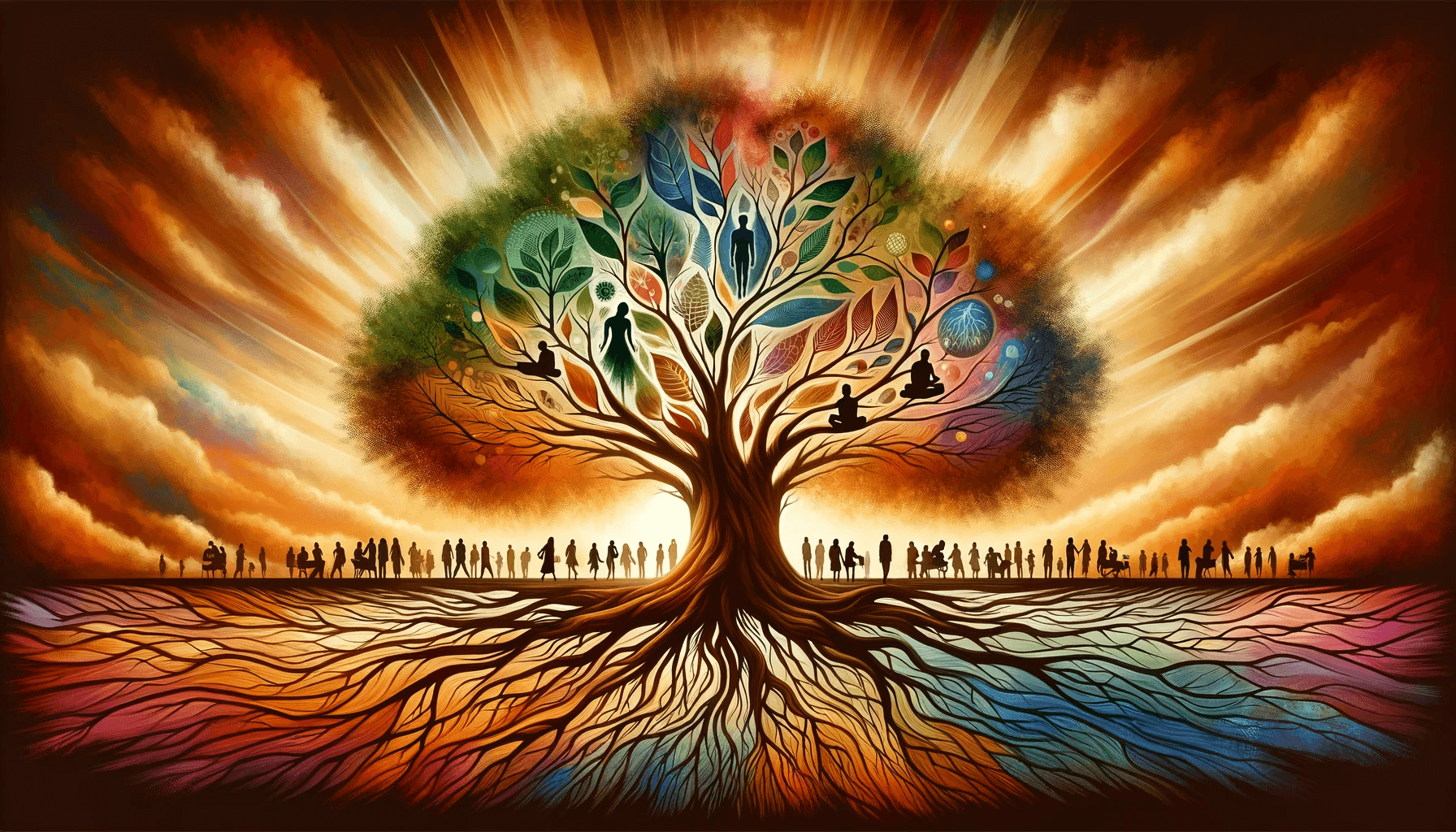Sponsor Millionaire’s Brain Academy
Table of Contents
Introduction: The importance of appreciation in relationships
In any romantic or platonic relationship, appreciation is crucial in fostering a healthy and fulfilling connection. The glue binds individuals together, making them feel valued, acknowledged, and loved. However, the lack of appreciation can quietly erode the foundation of a relationship, leading to resentment, dissatisfaction, and, ultimately, its demise. This article will delve into the silent killer in relationships – the lack of appreciation – and explore its signs, impact, root causes, and strategies to address it.
Signs of a lack of appreciation in a relationship
One of the first signs of a lack of appreciation in a relationship is the absence of gratitude. When one or both partners fail to express gratitude for the efforts, sacrifices, and contributions made by the other, it creates a sense of unimportance and neglect. Moreover, a lack of appreciation can manifest in dismissive behavior, where one partner consistently overlooks or trivializes the achievements, feelings, or needs of the other. This dismissiveness can lead to feelings of insignificance and resentment, ultimately breeding a toxic atmosphere within the relationship.
Another sign is the absence of validation. When individuals in a relationship don’t feel seen or heard, it can be emotionally draining and demoralizing. The lack of appreciation often manifests in a failure to acknowledge and validate the other person’s emotions, opinions, and experiences. This can result in a breakdown of trust and communication, as the person feeling unappreciated may withdraw and suppress their thoughts and feelings, fearing they won’t be valued or understood.
Furthermore, the lack of appreciation can be observed in a lack of reciprocity. A healthy relationship thrives on a give-and-take dynamic where partners support and uplift each other. However, when one person consistently receives support and affirmation without reciprocating, it creates an imbalance that can breed resentment and feelings of being taken for granted. This can lead to emotional distance and a breakdown in the overall connection.
The impact of a lack of appreciation on relationships
The impact of a lack of appreciation on relationships must be considered. It slowly chips away at the foundation of trust, love, and intimacy, leaving a trail of discontent and unhappiness. When people feel unappreciated, they may question their worth within the relationship. They may feel ignored, undervalued, and invisible, resulting in diminished self-esteem and self-worth.
Over time, the lack of appreciation can create a toxic cycle of negativity and resentment. The unappreciated partner may become bitter and resentful, harboring negative emotions that poison the relationship. This can lead to a breakdown in communication, emotional distance, and even the erosion of love and affection. The lack of appreciation can be particularly damaging in long-term relationships, where accumulating unexpressed gratitude and acknowledgment can become a heavy burden.
Beyond the emotional impact, a lack of appreciation can also affect the overall quality of the relationship. It can lead to a decline in intimacy, as the unappreciated partner may feel less inclined to invest emotionally and physically. It can also create a sense of dissatisfaction and disillusionment, making the relationship feel unfulfilling and unsatisfactory. Ultimately, the lack of appreciation can contribute to the deterioration of the relationship and the eventual breakdown of the bond between partners.
Understanding the root causes of a lack of appreciation
To address the issue of a lack of appreciation in relationships, it is essential to understand its root causes. Often, the lack of appreciation stems from individual and relational factors.
Individually, past experiences and upbringing can contribute to one’s ability to express and receive appreciation. If a person grew up in an environment where appreciation was not emphasized or modeled, they may need help recognizing its importance in their relationships. Personal insecurities and low self-esteem can also hinder expressing appreciation, as individuals may fear vulnerability or believe they are unworthy of appreciation.
Relationally, the lack of appreciation can result from complacency and taking the other person for granted. As relationships progress and become more comfortable, individuals may become less mindful of expressing gratitude and acknowledgment. This can lead to a decline in appreciation over time, as partners assume that their actions and love are implicitly understood and recognized.
Furthermore, external stressors such as work pressures, financial difficulties, or health issues can also contribute to a lack of appreciation. When partners are overwhelmed by external challenges, they may inadvertently neglect to express gratitude and acknowledgment, focusing solely on problem-solving rather than emotional support.
Communication strategies to address a lack of appreciation
Addressing a lack of appreciation in a relationship requires open and honest communication. Creating a safe space where both partners can express their feelings and concerns without judgment or defensiveness is crucial. Here are some communication strategies that can help address the issue:
- Express your needs: Clearly communicate your need for appreciation and acknowledgment to your partner. Explain how it makes you feel when your efforts go unnoticed or unacknowledged. Use “I” statements to express emotions and avoid blaming or accusing language.
- Active listening: Practice listening when your partner expresses their feelings of being unappreciated. Validate their emotions and seek to understand their perspective. Avoid interrupting or dismissing their concerns, as this can further perpetuate the lack of appreciation.
- Reframe negative interactions: Instead of reacting defensively or with anger when your partner expresses dissatisfaction, try to reframe the interaction as an opportunity for growth and improvement. Approach the conversation with empathy and a willingness to understand and address their concerns.
- Set realistic expectations: Discuss and establish realistic expectations regarding appreciation and acknowledgment within the relationship. Understand that everyone has different ways of expressing and receiving appreciation, and be willing to compromise and find a balance that works for both partners.
- Practice gratitude: Cultivate a habit of expressing gratitude towards each other regularly. Make it a point to acknowledge and appreciate the small gestures, efforts, and qualities that you value in your partner. This practice can help create a positive and appreciative atmosphere within the relationship.
Remember, communication is key in addressing the lack of appreciation. It is important to approach these conversations with empathy, understanding, and a genuine desire to improve the relationship.
Building a culture of appreciation in relationships
Building a culture of appreciation is essential to combat the lack of appreciation in relationships. This involves creating an environment where appreciation is valued, encouraged, and reciprocated. Here are some strategies to foster a culture of appreciation:
- Lead by example: Be the change you want to see in your relationship. Take the initiative to express appreciation towards your partner regularly. This can inspire them to reciprocate and create a positive gratitude and acknowledgment feedback loop.
- Practice active appreciation: Actively look for opportunities to express appreciation. Notice and acknowledge the small acts of kindness, thoughtfulness, or effort your partner puts into the relationship. This can be as simple as thanking them for making dinner or acknowledging their support during a difficult time.
- Create rituals of appreciation: Establish rituals or traditions that celebrate and appreciate each other. This can be a weekly gratitude session, where you share what you appreciate about each other, or a monthly appreciation date night, where you especially express your love and gratitude.
- Encourage open communication: Foster an environment where both partners feel comfortable expressing their needs for appreciation. Encourage open and honest conversations about what makes each person feel valued and appreciated. This can help create a deeper understanding of each other’s appreciation of languages.
- Celebrate milestones and achievements: Take the time to celebrate milestones, achievements, and special occasions together. This can be done through thoughtful gestures, surprises, or spending quality time together. Celebrating these moments shows appreciation and strengthens the bond between partners.
By actively cultivating a culture of appreciation, partners can create a positive and nurturing environment that fosters love, connection, and a deep appreciation for each other.
The role of gratitude in fostering appreciation
Gratitude plays a pivotal role in fostering appreciation within relationships. It is the foundation on which appreciation thrives and grows. When individuals practice gratitude, they develop a heightened awareness of the positive aspects of their relationship and their partner’s actions. Here are some ways gratitude can foster appreciation:
- Shifting perspective: Gratitude helps shift our perspective from focusing on what is lacking to what is present and positive. It allows us to see the efforts, sacrifices, and love that our partner brings to the relationship. This shift in perspective enables us to appreciate their actions and qualities more fully.
- Deepening connection: Expressing gratitude towards our partner strengthens our emotional bond. It creates a sense of closeness and intimacy, as both partners feel seen, valued, and acknowledged. Gratitude opens the door to vulnerability and fosters a deeper connection between individuals.
- Positive reinforcement: When we express gratitude for our partner’s actions, we reinforce those behaviors, encouraging them to continue their positive contributions to the relationship. This positive reinforcement creates a cycle of appreciation, where both partners are motivated to show gratitude and appreciation for one another continually.
- Boosting positivity: Gratitude profoundly impacts our overall well-being and happiness. By practicing gratitude towards our partner, we cultivate a positive mindset and outlook, enhancing the overall atmosphere within the relationship. Positivity breeds positivity, creating a harmonious and appreciative dynamic.
Overcoming personal barriers to expressing appreciation
Expressing appreciation can be challenging for some individuals due to personal barriers such as insecurities, fear of vulnerability, or a lack of understanding of expressing appreciation effectively. Here are some strategies to overcome these barriers:
- Self-reflection: Take the time to reflect on your insecurities and fears that may hinder your ability to express appreciation. Understand the root causes behind these barriers and work on addressing them. This may involve seeking therapy or engaging in self-help practices to build self-esteem and confidence.
- Learn the language of appreciation: Discover your partner’s preferred love language and learn how to express appreciation in a way that resonates with them. This can involve acts of service, quality time, physical touch, words of affirmation, or receiving gifts. Understanding your partner’s love language can help you effectively communicate your appreciation and make it more meaningful for them.
- Practice vulnerability: Overcoming the fear of vulnerability is essential in expressing appreciation. Be willing to open up and share your emotions with your partner. Expressing appreciation requires vulnerability, as you are exposing your feelings and acknowledging your partner’s impact on your life. Start small and gradually build up the courage to express deeper appreciation.
- Seek guidance: If personal barriers to expressing appreciation persist, consider seeking guidance from a therapist or relationship coach. They can provide valuable insights and tools to help overcome these barriers and cultivate a healthier appreciation within the relationship.
Seeking professional help for relationship issues related to lack of appreciation
Sometimes, the lack of appreciation in a relationship may be deeply ingrained and require professional help to address. If the strategies mentioned above do not improve the situation, it may be beneficial to seek the assistance of a therapist or couples counselor. These professionals can provide a neutral space for both partners to explore their feelings, improve communication, and work towards building a healthier and more appreciative relationship.
Therapy or counseling can help individuals and couples unpack the underlying issues contributing to the lack of appreciation, develop effective communication strategies, and learn to express and receive appreciation that aligns with both partners’ needs and preferences. Seeking professional help is a proactive step towards nurturing the relationship and addressing the silent killer of appreciation.
Conclusion: The power of appreciation in nurturing healthy relationships
Appreciation is the lifeblood of any relationship. The invisible force keeps the bond between individuals strong, vibrant, and fulfilling. On the other hand, the lack of appreciation can silently erode a relationship’s foundation, leading to discontent, resentment, and disconnection.
Understanding the signs, impact, and root causes of a lack of appreciation is crucial in addressing this issue. By implementing effective communication strategies, cultivating a culture of appreciation, and practicing gratitude, individuals can create an environment where appreciation thrives, and the relationship flourishes. Overcoming personal barriers to expressing appreciation and seeking professional help when needed are vital steps toward nurturing and sustaining a healthy, appreciative relationship.
Remember, appreciation is not a luxury but a necessity. It is the key to fostering love, connection, and happiness in relationships. So, let us recognize the power of appreciation and consciously express it to our loved ones every day.
CTA: If you’re struggling with a lack of appreciation in your relationship, feel free to seek professional help. Contact a therapist or couples counselor who can guide you toward fostering a healthier and more appreciative connection. Remember, there is always timetionship, and bringing back the power of appreciation is always possible.




